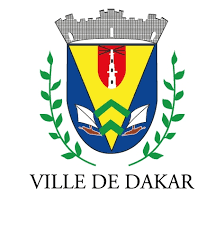Dakar
Learn more about Dakar's food system below
City overview
Dakar, the capital city of Senegal, has a population of 1,363,444 inhabitants.
Over the years, Dakar has experienced significant population growth due to its economic significance, contributing 80% to the country’s economy. This growth has led to urban food system challenges, such as the conversion of cultivable land into concrete spaces, resulting in reduced agricultural productivity, high food costs, health and nutritional vulnerabilities, loss of biodiversity, ecosystem degradation, and flooding issues.
To address these challenges, the city of Dakar has partnered with Milan to implement the micro-gardening program, promoting urban and peri-urban agriculture as an alternative food system aligned with sustainable development goals. Micro-gardens, small and affordable production units tailored to densely populated urban areas, facilitate circular economy principles by enabling optimal waste management and recycling. The program prioritises households, women’s groups, the elderly, youth, disabled centres, detention centres, and schools with canteens, aiming to enhance local food production and resilience.


City food system ambitions
• Establish food system and safety infrastructures such as; food safety and food system surveillance, monitoring, and data collection.
• Promotion and establishment of more standard market stalls and vendor support systems.
• Support the establishment of food-related ordinances and policies, on handling, transporting and storage of food.
• Sensitize communities on/ promote food recycling technologies.
Challenges
• Food and Nutrition Insecurity
• Access to Healthy and Affordable Food
• School Feeding Challenges
• Food Safety
• Urban Agriculture and Land Use
• Climate Change & Extreme Weather Events
Achievements
• Food and nutrition Security
• Food Safety
• Urban Agriculture and Land Use
What challenges can AfriFOODlinks support with?
• Develop the micro gardening program in the 19 municipalities in the city with the financing and implementation of new training centers in micro gardening.
• Strengthening capacity in management and business management The network of micro gardening actors through the association of gardeners in the city of Dakar.
• Set up a strategic orientation document for good sustainability of agricultural activities.
"The vendors were involved in the design of the food stalls. They wanted supermarket-style stalls with vertical layouts so that more products could be displayed. Storage compartments underneath provided a place to keep produce and facilitated customer interaction" - Peter Businda (Rikolto Coordinator)
Status of food and nutrition security
- Access to healthy and nutritious food, especially for children
- Strong informal sector
- Multi-functional centres that improve food security and provide community resilience Improved circular economies
